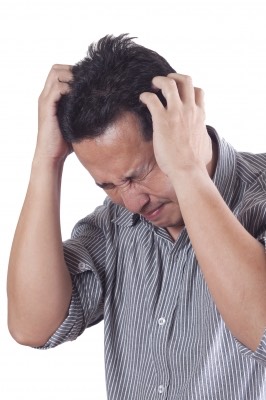
Often when I ask a new client if he or she is anxious I get a puzzled look. I’ve come to realize that not everyone knows what this means. Anxiety comes in many shapes and sizes. Most of us know what it is like to have the “butterflies” or “knots” in the stomach. There is that nervous, tense feeling that we get before something important, e.g., asking someone out, waiting for the exam to start, looking for work, public speaking, or standing up for oneself. When anxious, some people have to urinate more frequently, others get “the runs”. All of us experience anxiety at one time or another and this is perfectly normal. Most of the time we deal with it and it subsides.
As the level of anxiety increases we may experience other symptoms such as sweating, a cold, clammy feeling, shaky or unstable legs, hand tremors, shortness of breath, dizziness, a lump in the chest, and difficulty breathing. In its more extreme form we may experience hyperventilation (rapid breathing) and on occasion one may faint although this is not common. When the anxiety gets to the level where one feels like he or she is going crazy or may be having a heart attack then this is called panic. When it first happens, the anxiety is so severe that the individual may go to an emergency department where the heart and other vitals are checked and if all is ok, the diagnosis of panic disorder is made. It’s reassuring to know that you won’t die from it but when you are in the midst of an attack this thought seems far away.
An episode of panic usually doesn’t last very long whereas more generalized feelings of anxiety can last throughout the day or for days. Both prolonged anxiety and panic attacks can lead to fatigue and mental exhaustion. PTSD is another type of anxiety.
For acute (short term) episodes of anxiety a physician may prescribe a muscle relaxant such as Lorazepam (Ativan) or Clonazepam. These drugs work very quickly to calm the person down and settle the anxiety. However, in general, they are not meant to be taken on a long term basis and withdrawal is often a problem. A lot of people try to control the anxiety with alcohol but we know where that can lead!
Psychological treatments are often very effective in treating anxiety. This includes learning how to control one’s breathing, managing thoughts, and approaching the anxiety evoking situation in a more effective way.
There are a number of good websites to visit for information on anxiety and dealing with it. Check these out.
1. http://www.allaboutdepression.com/relax A very useful site to learn about relaxation
2. http://www.cci.health.wa.gov.au/resources/minipax.cfm?mini_ID=21 A good site for generalized anxiety and panic. Assessment tools and treatment.
3. Dr. Randy Paterson is based in Vancouver and has a very helpful web site.
4. http://www.paniccenter.net A self-help based website.
5. http://www.adaa.org/understanding-anxiety/social-anxiety-disorder
6. http://www.adaa.org/understanding-anxiety/panic-disorder-agoraphobia
8. Panic Disorder Screening Tool
Image courtesy of Iosphere at FreeDigitalPhotos.net